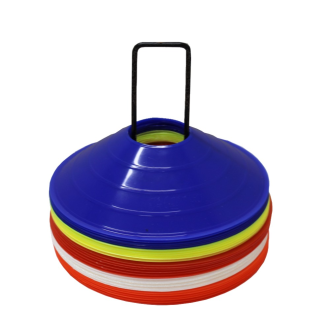Grassroots Football Returns from its Covid-19 Hiatus
Half the world closed down at the end of March due to the Covid-19 pandemic. Professional sport is already back in many countries — albeit without fans in attendance. The Premier League and the Championship were concluded behind closed doors. And although both competitions took a huge financial hit, they’ll both survive.
But the same can’t be said about hundreds of grassroots football leagues around the UK. Money was in short supply before this crisis, and it’s even more scarce today. Nevertheless, the FA has a plan to get everyone playing again, and it’s already underway.
Quite rightly, the FA’s priority is the safety of players at the grassroots level. Unlike their professional counterparts, amateur players can’t rely on two precautionary tests per week. This means the path back to competitive action is a much longer one.
Back in July, the FA worked with the government to draw up a roadmap for the grassroots game. As a result, a set of guidelines was published for leagues and clubs to follow.
It was decided that “football activity” could take place with various modifications. The FA admits that it’s impossible to eliminate the risk of transmission, but it hopes that the measures it’s taking can mitigate that risk considerably.
In July, grassroots clubs were allowed to return to competitive training. However, the overall size of any one group was limited to 30 — including coaches and staff.
We’re now well into August, and preparations for the new season are well underway. Competitive pre-season matches are allowed, as are small-sided games and festivals. And from September, most grassroots leagues can begin. These include the National League System, the Women’s Football Pyramid (tiers three to six) and most FA competitions.
However, it’s definitely not business as usual. The FA has published a detailed set of Covid-19 guidelines that all clubs and associations must follow. Failure to adhere to the guidelines can result in fines and expulsion from FA-affiliated competitions.
It is the responsibility of each player to self-assess for symptoms of Covid-19 before every match and training session. The main symptoms are:
- A high temperature (hot to the touch on the head, chest or back)
- A new and continuous cough
- A sudden loss of taste, smell or both
Players, coaches and staff who have just one of these symptoms should self-isolate and contact the NHS for a test. While waiting for the test result, players must remain at home. Under no circumstances should a player suspected of having Covid-19 take part in matches or training sessions.
The NHS website states that anyone with symptoms should self-isolate for at least 10 days from the day of the first symptom. People should only break quarantine when they’re completely free of symptoms.
Until further notice, the FA has implemented the following Covid-19 guidelines:
- No more than 30 people can attend a training session
- All clubs must ensure their playing facilities are compliant with the Government’s Covid-19 legislation
- Players, coaches and officials must sanitise their hands before and after a game, and during scheduled breaks when training
- Social distancing must be observed before and after matches and training sessions
- The ball should be handled as little as possible
- Balls should be sanitised frequently during matches and training sessions
- Goal celebrations should be kept to a minimum and be contact-free
- Coaches must limit close proximity to players and colleagues as much as possible
- Equipment should not be shared
- Only coaches should handle equipment during training
- Goalkeepers should sanitise their gloves frequently during matches and training sessions
- Wherever possible, players should arrive at matches and training sessions in their kit
- Players should shower at home after matches and training sessions
- Players and staff should minimise use of public transport (cycle or walk wherever possible)
- A full record of names, addresses and telephone numbers should be kept for each match/training session
While the pandemic continues, the FA has prohibited all futsal and indoor football. This ban will be kept under review over the coming weeks.
There is, of course, a risk involved in opening up grassroots football again. People with underlying health conditions should consult with their doctor before returning to football. Those with serious conditions such as asthma, diabetes and respiratory disease are being advised to stay away for now.
While there are risks involved in the FA’s plan for grassroots football, there are risks involved in delaying the restart. The mental health and physical fitness of a generation are at stake. And hundreds of clubs and associations are on the brink of financial ruin.
Infection rates will be monitored closely by the FA. But the data is only as reliable as the information being received by clubs and associations. Players should inform their club if they have symptoms or have tested positive for Covid-19.
It’s great to see playing fields of the UK once again hosting grassroots football. If everyone involved plays their part in staying safe, millions of young players will reap the health benefits.




